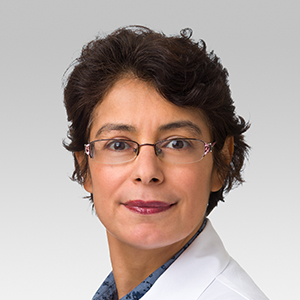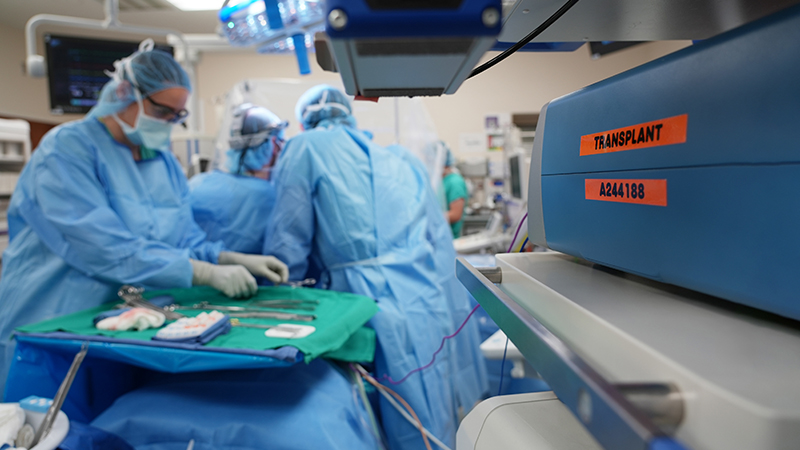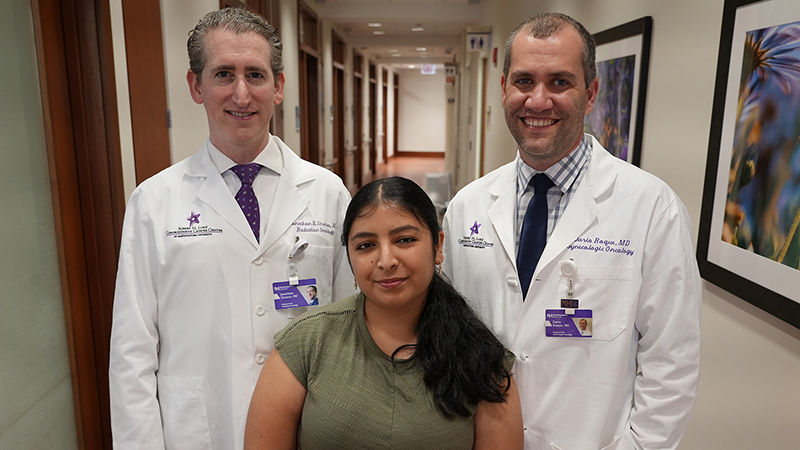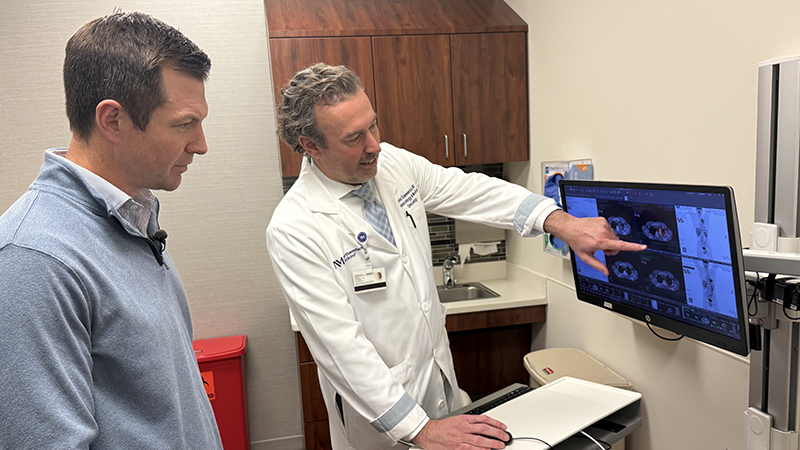The Importance of Comprehensive Care for ALS
Chicago Mother and Professor Receives Treatment After ALS Diagnosis
Published June 2023
In 2016, at the age of 38, Kristin Rankin was in the prime of her career and personal life. Married with three young daughters, Kristin was three years into pursuing tenure as an assistant professor of Maternal and Child Health Epidemiology at University of Illinois Chicago’s (UIC) School of Public Health and had just received a national award for excellence in teaching and mentoring.
She had no plans of slowing down — until she started tripping and falling on her walk to and from the train station due to foot drop, or difficulty lifting the front part of her foot.
Patients with ALS come to Northwestern Medicine from all over the country.— Senda Ajroud-Driss, MD
She was also having trouble typing and pinching with her fingers, and she experienced quivers in her arm muscles. Kristin fell 17 times before finally going to a neurologist. Doctors diagnosed her with amyotrophic lateral sclerosis (ALS) — also known as Lou Gehrig’s Disease — which is a progressive neurological disorder affecting the nerve cells in the spinal cord and brain that controls muscle. Over time, the muscles weaken, wither away and twitch. While the brain gradually loses its ability to control voluntary movement, ALS doesn’t impact mental functions, such as sight, hearing or comprehension. The average survival rate for someone with ALS is three to five years from the time symptoms begin.
The most common symptoms of ALS include:
- Muscle cramps, twitching or weakness, especially in the hands or feet
- Loss of control in the arms or hands
- Difficulty running or walking
- Trips or falls
- Dropping things
- Difficulty with writing
- Uncontrollable periods of laughing or crying
- Slurred or thick speech and difficulty projecting the voice
As ALS progresses, symptoms can include:
- Trouble breathing
- Difficulty swallowing
Providing All-Around Care
“While there is no cure for ALS, there are a few promising treatment options that can slow down disease progression,” says Senda Ajroud-Driss, MD, a neuromuscular medicine specialist at Northwestern Medicine who works with Kristin. “Northwestern Medicine is one of a few multidisciplinary clinics in the country that offer comprehensive clinical care and an extensive clinical research program. In the last three years, the clinical research program has grown exponentially, and patients with ALS come to Northwestern Medicine from all over the Midwest to receive care.”
“Access to comprehensive multidisciplinary ALS care not only helps people live longer but improves quality of life,” says John M. Coleman III, MD, a pulmonary and critical care specialist at Northwestern Medicine who cares for patients with ALS. “The Lois Insolia ALS Clinic at the Les Turner ALS Center at Northwestern Medicine is the oldest and most established comprehensive ALS center in the Chicagoland area. We pride ourselves on being a center for the best ALS clinical care and home to expansive research with clinical trials and basic sciences. We’re committed to providing the top care for people living with ALS.”
Access, Information and Treatment
The ALS diagnosis quickly changed Kristin’s life. Now at the age of 45, she is unable to provide physical care for her children (ages 14, 12 and 9) or participate in many typical activities with them, but tries to find ways to stay as involved in their lives as possible.
“I always imagined I'd teach them how to cook, volunteer in their classrooms and shuttle them to activities, among other ‘mom things,’ but I can't do any of that anymore, and now my kids have to help me with daily challenges in a role reversal. It's changed my relationship with my husband, who now must do all of that and more for the kids, on top of caring for me,” says Kristin. “When my father became ill a few years ago and passed away from cancer, I couldn't help my mom take care of him – and I'm an only child – so that was devastating.”
With respect to her career, the disease forced Kristin to stop classroom teaching and drastically reduce her hours. Fortunately, with the support of her colleagues and access to technology, she’s still able to contribute meaningfully to research projects, perform data analysis for partners at the Illinois Department of Public Health and mentor PhD students. On another positive note, according to Kristin, ALS has forced her to slow down, stay present in the moment and enjoy the little things in life.
“Having access to a neurologist, pulmonologist, dietician, speech pathologist and occupational therapist all during one visit is not only convenient, but also ensures consistency in my care. The team has kept me ahead of the disease progression by ensuring that my power wheelchair was ready by the time I had to be dependent on it, that I had access to an eye-gaze tablet when my voice started weakening and I couldn't type anymore, and that my feeding tube was placed so I didn't lose weight as feeding myself became more difficult,” Kristin says. “The whole care team makes me feel like I'm an equal partner in my care, which means a lot to me and can be rare to find in the healthcare setting.”






